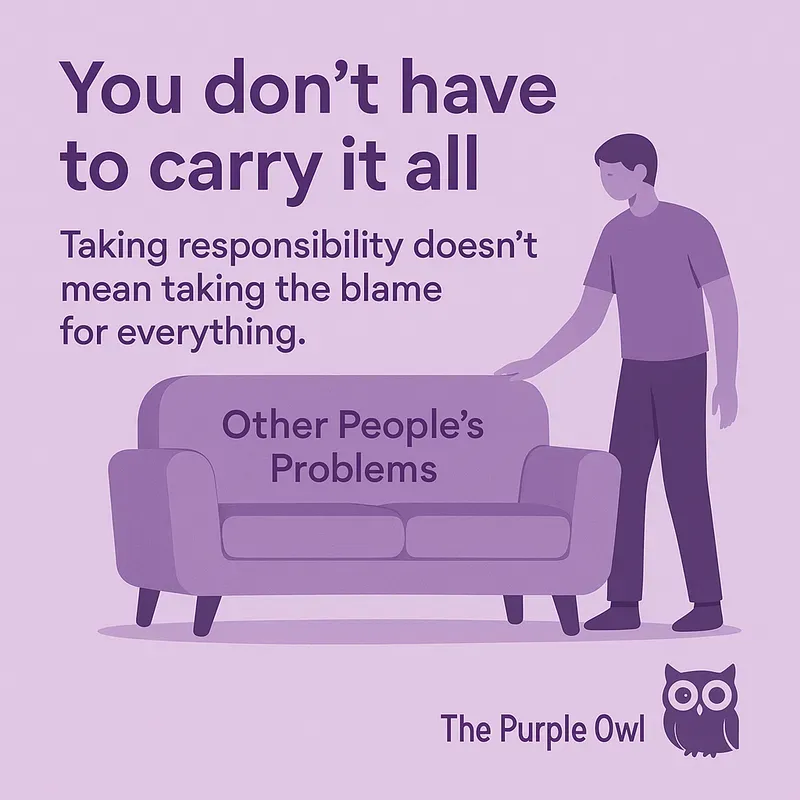Why Taking Responsibility Doesn’t Mean Taking the Blame for Everything

For years, I filtered my entire life through one powerful mindset:
“Take responsibility for your actions.”
And not just your actions—your words, your choices, your energy, your judgments… your one eyebrow raise from 2009. (You know the one.)
This concept of personal accountability became my life’s North Star.
But somewhere along the way, I took it too far.
In every conflict or tough conversation, I rushed to take full responsibility.
If someone was hurt, it had to be my fault. If someone apologized, I waved it off and dove into my mistakes instead. I thought I was being emotionally mature.
Spoiler alert: I was just over-apologizing myself into emotional burnout.
Because here’s what happens when you take responsibility for everything:
- You rob other people of the chance to take accountability.
- You silence the growth that can come from shared responsibility.
- You get stuck in cycles of resentment, even when you’re trying to do the right thing.
This is a classic sign of people-pleasing behavior—and it’s exhausting.
What I’ve finally learned (the hard way)?
You can take ownership of your actions without carrying the blame for others.
You can say, “I hear you,” and not jump to, “Let me fix it all.”
Now, instead of rushing to patch every emotional leak in the room, I pause.
I listen.
And when someone takes responsibility for their part?
I let it sink in.
Because sometimes, healing means letting go of the need to be the emotional clean-up crew.
Sometimes, it means saying, “Thank you for your apology,” and not following it with ten reasons you probably deserved it.
Taking responsibility is part of healthy relationships—but so is letting others do the same.
So if you’ve been carrying couches that don’t belong to you…
You can set them down now.
You’re allowed to rest.
By: Jess E
